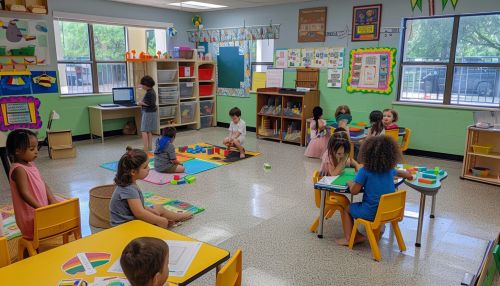Differentiated Instruction
Overview
Differentiated Instruction is a teaching philosophy and methodology that caters to the diverse learning needs of students in a classroom. It involves tailoring instructional strategies and learning experiences to meet individual learner needs. Differentiated instruction is based on the premise that instructional approaches should vary and be adapted in relation to individual and diverse students in classrooms More on Differentiated Instruction.
History and Development
The concept of differentiated instruction has its roots in the work of educational theorists and psychologists such as Lev Vygotsky, Jean Piaget, and Howard Gardner. These theorists emphasized the importance of recognizing individual differences in learners and adjusting instruction accordingly More on Educational Theorists.
Theoretical Framework
Differentiated instruction is grounded in several theories and models of learning and development. These include Vygotsky's Zone of Proximal Development, Gardner's Theory of Multiple Intelligences, and Tomlinson's Model of Differentiated Instruction More on Learning Theories.


Principles of Differentiated Instruction
Differentiated instruction is guided by several key principles. These include respect for diversity in learning, the need for a positive classroom environment, a student-centered approach, and the use of ongoing assessment to guide instruction More on Principles of Differentiated Instruction.
Strategies for Differentiating Instruction
There are several strategies that teachers can use to differentiate instruction. These include differentiating content, process, product, and learning environment. Each of these strategies involves making adjustments to aspects of the learning experience to better meet the needs of individual students More on Instructional Strategies.
Benefits of Differentiated Instruction
Differentiated instruction offers several benefits. It helps to engage students in the learning process, cater to diverse learning needs, and improve academic outcomes. It also promotes a positive classroom environment and fosters a love of learning More on Benefits of Differentiated Instruction.
Challenges and Criticisms
Despite its benefits, differentiated instruction also faces several challenges and criticisms. These include the difficulty of implementing it in large classrooms, the need for extensive teacher training and support, and concerns about its effectiveness More on Challenges of Differentiated Instruction.
Future Directions
The future of differentiated instruction lies in the continued exploration of its potential benefits and challenges, as well as in the development of new strategies and tools to support its implementation More on Future of Education.
